
Majestic Karisimbi Volcano: Rwanda's Natural Wonder
Nestled in the heart of Rwanda, the Karisimbi Volcano is the highest peak in the Virunga Mountains and stands at an impressive 4,507 meters. This dormant volcano is part of the Volcanoes National Park, making it a prime destination for adventurers and nature lovers alike. The surrounding lush vegetation and unique wildlife, including the famous mountain gorillas, add to the allure of this natural gem. Climbing Karisimbi is a thrilling experience that offers breathtaking views of the surrounding landscapes. The hike typically takes two days, with an overnight camp at an altitude of around 3,700 meters. As you ascend, you'll pass through diverse ecosystems, from bamboo forests to Afro-alpine zones. The summit rewards climbers with panoramic views of the Virunga range and, on clear days, even glimpses of the distant Nyiragongo Volcano in the Democratic Republic of Congo. Beyond the climb, the park offers rich cultural experiences. Local guides share insights into the history and significance of the volcano and its surroundings. Engaging with the local communities provides a deeper appreciation of the Rwandan culture and traditions. Whether you're an avid hiker or simply seeking a unique encounter with nature, Karisimbi Volcano promises an unforgettable adventure.
Local tips in Karisimbi Volcano
- Pack warm clothing; temperatures drop significantly at higher altitudes.
- Hire a local guide for a safe and informative climbing experience.
- Carry sufficient water and snacks for the two-day hike.
- Acclimate to the altitude a day before starting your climb to prevent altitude sickness.
- Visit during the dry seasons (June to September and December to February) for the best climbing conditions.
Majestic Karisimbi Volcano: Rwanda's Natural Wonder
Nestled in the heart of Rwanda, the Karisimbi Volcano is the highest peak in the Virunga Mountains and stands at an impressive 4,507 meters. This dormant volcano is part of the Volcanoes National Park, making it a prime destination for adventurers and nature lovers alike. The surrounding lush vegetation and unique wildlife, including the famous mountain gorillas, add to the allure of this natural gem. Climbing Karisimbi is a thrilling experience that offers breathtaking views of the surrounding landscapes. The hike typically takes two days, with an overnight camp at an altitude of around 3,700 meters. As you ascend, you'll pass through diverse ecosystems, from bamboo forests to Afro-alpine zones. The summit rewards climbers with panoramic views of the Virunga range and, on clear days, even glimpses of the distant Nyiragongo Volcano in the Democratic Republic of Congo. Beyond the climb, the park offers rich cultural experiences. Local guides share insights into the history and significance of the volcano and its surroundings. Engaging with the local communities provides a deeper appreciation of the Rwandan culture and traditions. Whether you're an avid hiker or simply seeking a unique encounter with nature, Karisimbi Volcano promises an unforgettable adventure.
When is the best time to go to Karisimbi Volcano?
Iconic landmarks you can’t miss
Kigali Genocide Memorial
Explore the Kigali Genocide Memorial, a profound historical site dedicated to the memory of genocide victims and the resilience of Rwandan society.
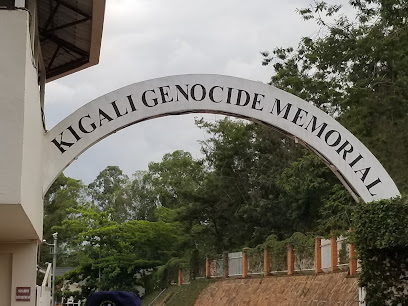
Gorilla Guardians
Explore the breathtaking beauty and conservation efforts at Gorilla Guardians, where you can encounter mountain gorillas in the stunning landscapes of Rwanda.
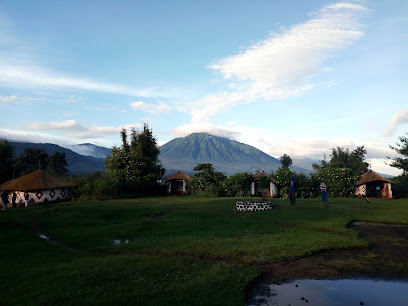
Rwanda Gorilla Safari
Explore the breathtaking Volcanoes National Park and witness the majestic mountain gorillas in their natural habitat at Rwanda Gorilla Safari.
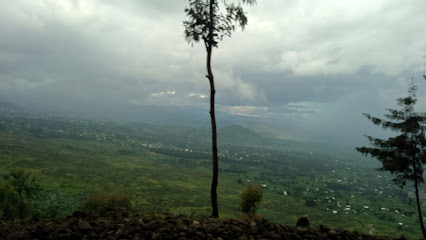
Mount Bisoke
Explore the stunning landscapes and rich biodiversity of Mount Bisoke, a majestic dormant volcano in Rwanda's breathtaking Volcanoes National Park.
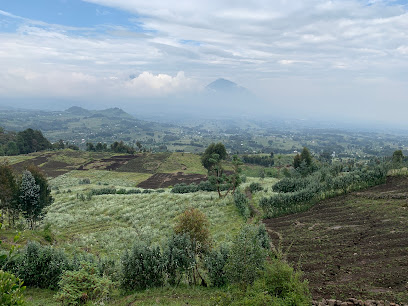
Gorilla naming place (Kwita izina - KinigiKong)
Immerse yourself in Rwanda's rich culture and wildlife conservation at the unforgettable Kwita Izina gorilla naming ceremony in Kinigi.
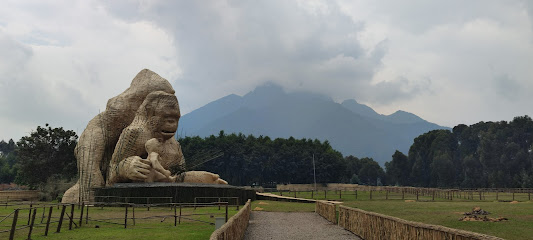
Mount Karisimbi
Discover the breathtaking beauty of Mount Karisimbi, Rwanda's highest volcano, and trek through lush landscapes filled with unique wildlife and culture.
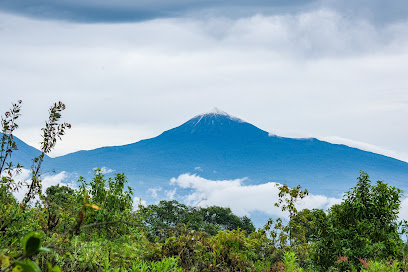
Karisimbi Cave Resort
Experience the tranquil beauty of Karisimbi Cave Resort in Ruhengeri, where luxury meets nature amid breathtaking volcano views.
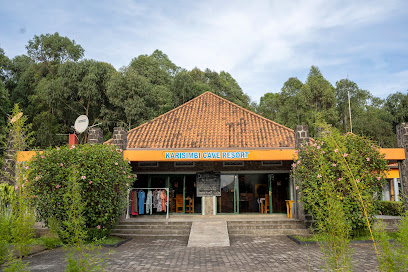
The Rock of Kamegeri
Explore the Rock of Kamegeri, a historical landmark in Ruhango, Rwanda, rich in culture and surrounded by breathtaking natural beauty.
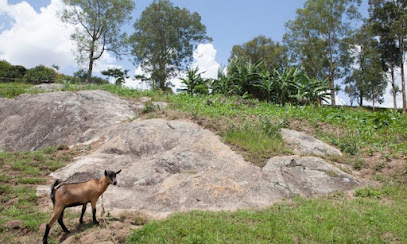
Cratere Karisimbi
Discover the breathtaking beauty of Cratere Karisimbi, a stunning volcanic crater in Rwanda, perfect for hiking and wildlife observation.

Unmissable attractions to see
Mount Karisimbi
Experience the breathtaking beauty of Mount Karisimbi, Rwanda's highest volcano, and embark on an unforgettable trekking adventure in the heart of nature.
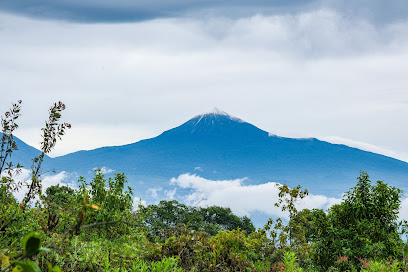
Les Chutes de Ndaba
Experience the breathtaking beauty of Les Chutes de Ndaba, a stunning waterfall in Rwanda, perfect for nature lovers and adventure seekers.
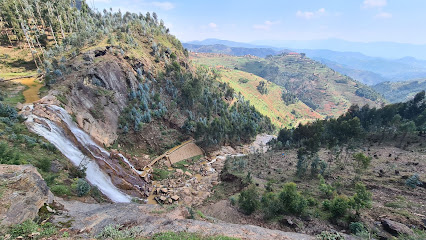
Volcanoes Over View Safaris & Under Volcanoes View Guest House
Explore the breathtaking beauty of Rwanda's volcanoes at Volcanoes Over View Safaris & Under Volcanoes View Guest House, your gateway to adventure.
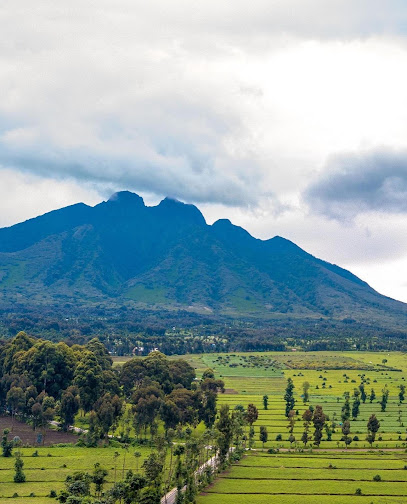
Lake Burera Boat Point
Discover the serene beauty of Lake Burera Boat Point, a tranquil retreat in Rwanda perfect for boating, relaxation, and stunning views.
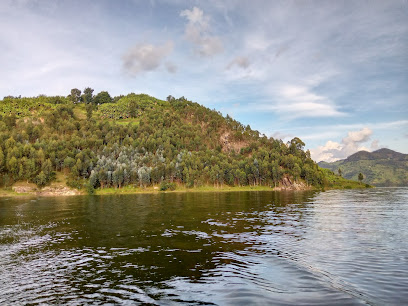
Isaac Water Falls
Experience the breathtaking beauty of Isaac Water Falls, a natural marvel in Rwanda, perfect for nature lovers and adventure seekers alike.
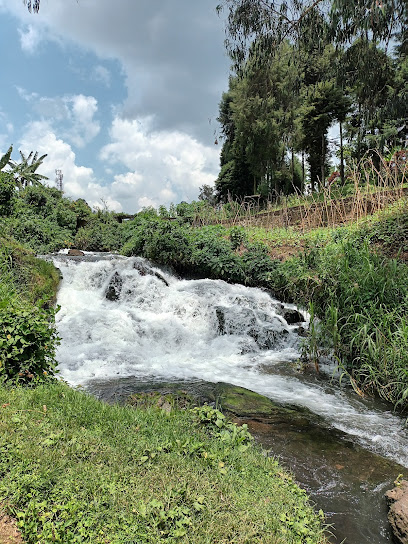
BUHANGA ECO-PARK
Explore Buhanga Eco-Park: A breathtaking hiking area in Nyakinama, Rwanda, perfect for nature lovers and adventure seekers.
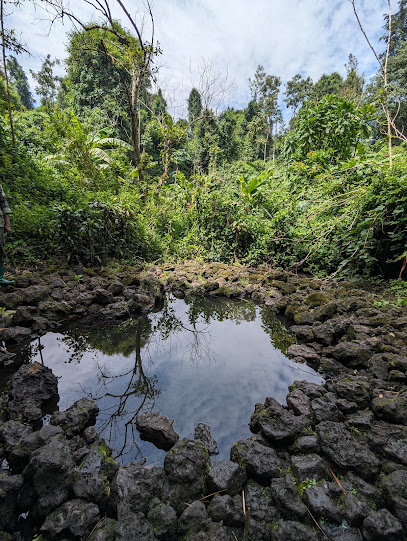
MASHARIKI AFRICA TOURS AND SAFARIS
Discover the enchanting landscapes and wildlife of Rwanda with Mashariki Africa Tours and Safaris - an unforgettable adventure awaits you!
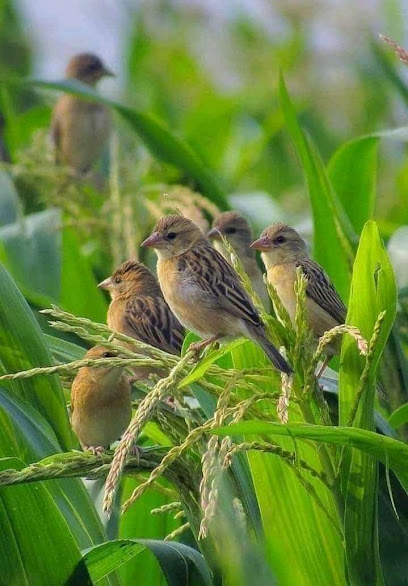
Ubuyanja Mosquée de Byangabo
Explore Ubuyanja Mosquée de Byangabo in Ruhengeri for a blend of tranquility, culture, and stunning architecture amidst Rwanda's picturesque landscapes.
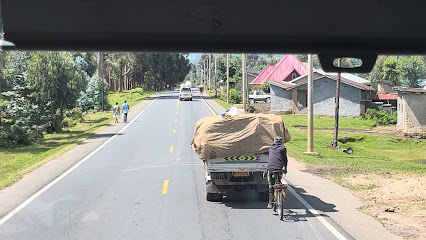
Parc National des Volcans
Explore the breathtaking Parc National des Volcans, home to majestic mountain gorillas and stunning landscapes in the heart of Congo.
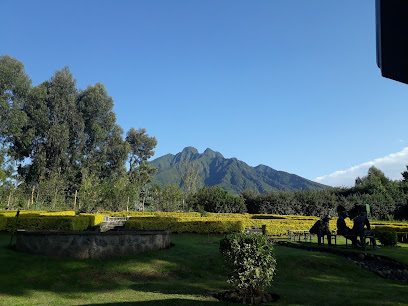
BOAT TO FRAMA ADVENTURES
Discover the breathtaking beauty and tranquility of Boat to Frama Adventures in Rwanda, where nature meets adventure on serene waters.
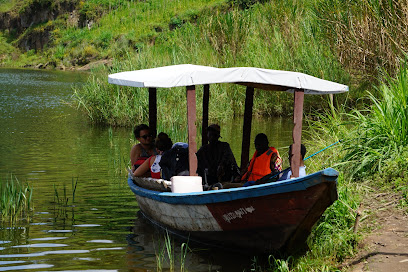
Mt Nyiragongo volcano
Explore the breathtaking beauty and thrilling adventure of Mt Nyiragongo, home to an active lava lake and stunning hiking trails in the heart of Africa.
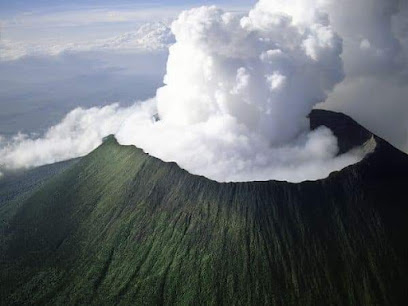
Wood wildlife photography
Explore the breathtaking beauty of Rwanda's wildlife at Wood Wildlife Photography, a paradise for nature lovers and photographers.
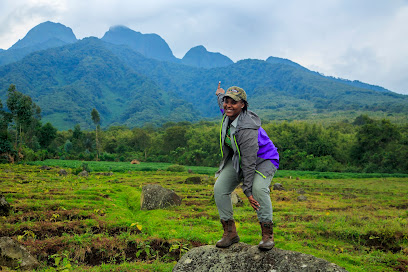
Crocodile zone
Explore the fascinating world of crocodiles at Crocodile Zone, a must-visit wildlife sanctuary in Rugalika, Rwanda, perfect for adventure seekers and families.
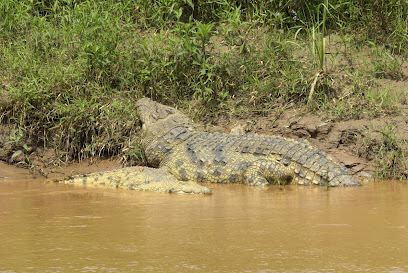
Lake Ruhondo Boat Point
Discover tranquility and natural beauty at Lake Ruhondo Boat Point, a hidden gem in Rwanda perfect for relaxation and exploration.
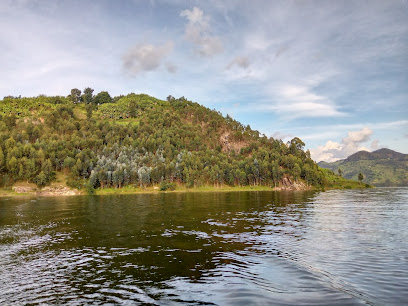
Visoke point d’arrivé randonnée
Discover the breathtaking beauty of Visoke Point d'Arrivée, a premier hiking area in Kinigi, Rwanda, perfect for nature lovers and adventure seekers alike.

Essential places to dine
The Best Nigerian Food In Kigali
Savor authentic Nigerian cuisine in Kigali with flavorful dishes from jollof rice to fresh seafood, showcasing the best of West African culinary traditions.

Volcana Lounge
Experience the rich flavors of Rwanda at Volcana Lounge – where culinary delights meet breathtaking views in Musanze.
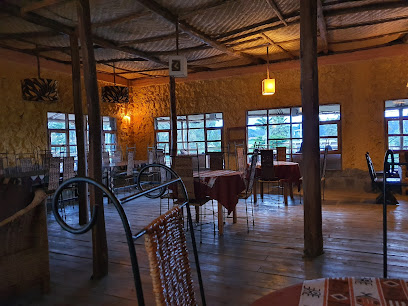
Traveling Roots Ltd
Experience the best of Rwandan and international cuisine at Traveling Roots Ltd in Ruhengeri - where flavor meets culture.
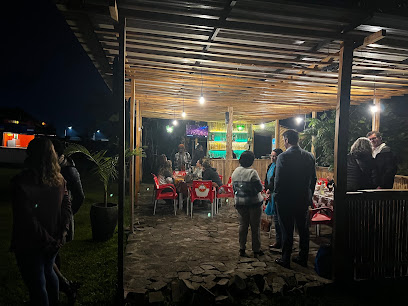
Susa Gardens
Discover the flavors of Rwanda at Susa Gardens, where authentic cuisine meets a serene ambiance in beautiful Susa village.
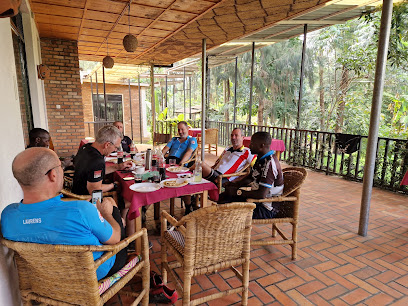
The Delicious Chinese Restaurant
Experience authentic Chinese flavors in Ruhengeri at The Delicious Chinese Restaurant – where every meal is a celebration of taste.
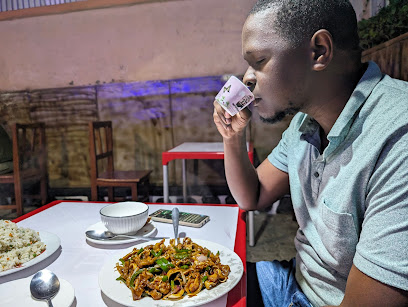
Isame Restaurant And Coffee Shop
Experience the rich flavors of Africa at Isame Restaurant and Coffee Shop in Kigali – where every meal tells a story.
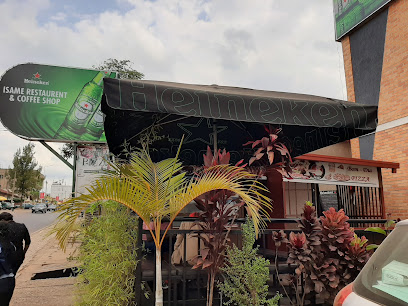
Cool Garden Restaurant
Experience delightful local and international cuisine amidst lush greenery at Kigali's enchanting Cool Garden Restaurant.
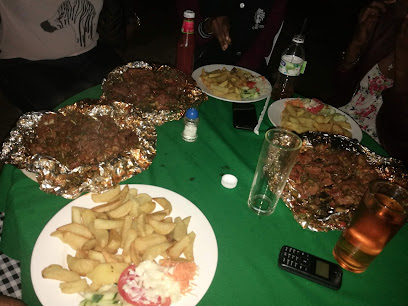
Afri-Indian restaurant
Savor the exquisite blend of African and Indian cuisines at Afri-Indian Restaurant in Ruhengeri—where culinary traditions unite.
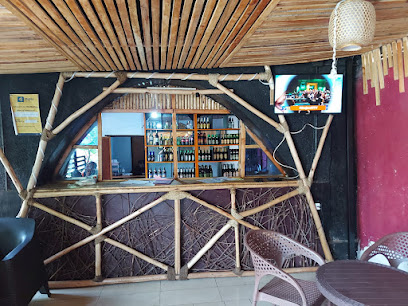
Restaurant Tranquillité
Discover authentic Rwandan flavors at Restaurant Tranquillité in Nyamabuye—where culinary delights meet serene landscapes.
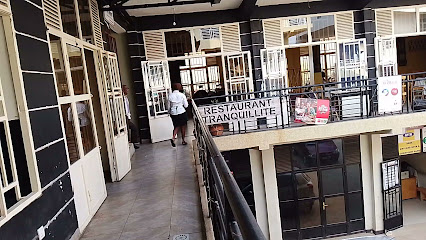
Karisimbi Cave Resort
Experience serene luxury at Karisimbi Cave Resort in Ruhengeri – your gateway to adventure amidst breathtaking landscapes.
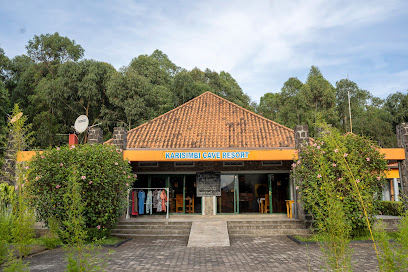
Volcanoes forest camp
Experience nature's embrace at Volcanoes Forest Camp - where adventure meets tranquility amidst Rwanda's stunning landscapes.

The Garden Place Hotel
Experience unmatched hospitality at The Garden Place Hotel in Ruhengeri - your gateway to Rwanda's stunning landscapes.
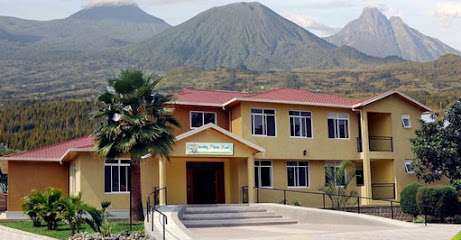
La Roca
Experience tranquility at La Roca, where delightful coffees meet stunning river views in Rwanda's serene landscape.
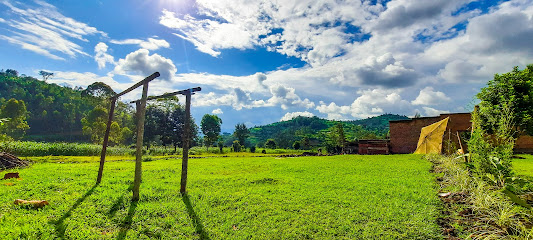
Maya's
Experience authentic Rwandan flavors at Maya's - a top dining destination in Ruhengeri known for its exquisite cuisine and welcoming atmosphere.

Bweramvura Resto
Discover the heart of Rwandan cuisine at Bweramvura Resto - where families gather for authentic flavors and warm hospitality.
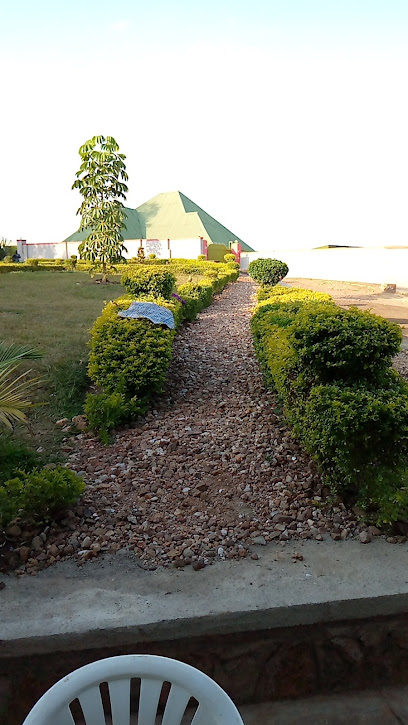
Markets, malls and hidden boutiques
Roots Rwanda Online Shopping
Explore the essence of Rwanda through Roots Rwanda Online Shopping, where authentic local products meet modern convenience.
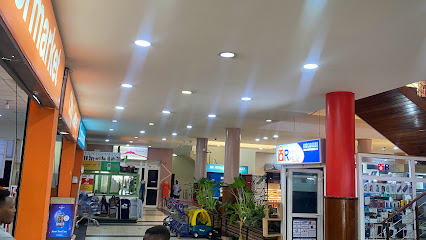
Umuzabibu Mwiza - Handspun Hope
Discover the vibrant spirit of Rwandan craftsmanship at Umuzabibu Mwiza - Handspun Hope, where each purchase empowers local artisans and tells a unique story.
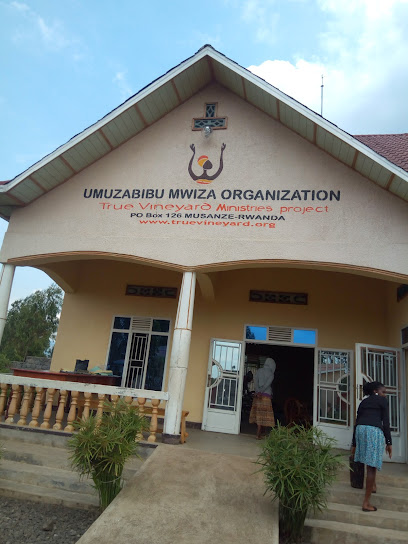
Basket Store
Discover unique handmade baskets at the Basket Store in Kigali, a must-visit gift shop showcasing Rwanda's rich craft heritage.
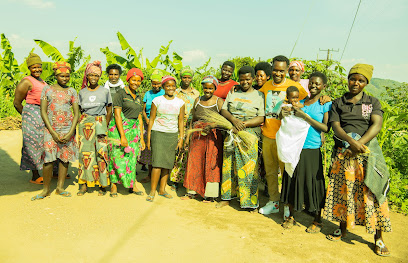
Gorilla Highlands Tours, Gifts & Treats
Discover the heart of Rwanda with Gorilla Highlands Tours, Gifts & Treats - your go-to for adventure, local delicacies, and unique souvenirs.
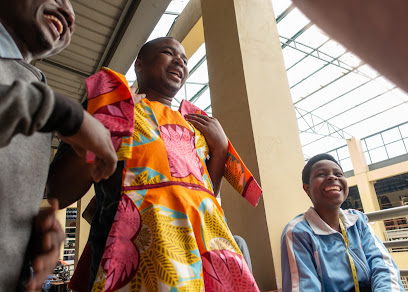
Kabatwa Centre
Explore Kabatwa Centre: A bustling shopping mall in Rwanda offering diverse retail, delicious food options, and a unique cultural experience.
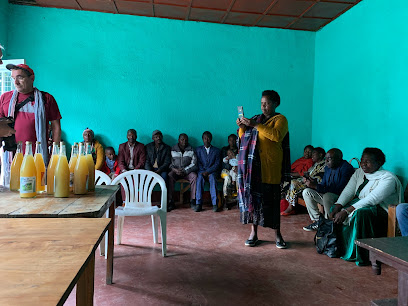
Rega
Discover the vibrant shopping scene and local culture at Rega, Mukamira's premier shopping mall, featuring unique shops and delicious cuisine.

Love To Help Rwanda
Explore the heart of Rwandan craftsmanship at Love To Help Rwanda, where unique gifts and authentic souvenirs await every traveler.

Rubaka Ubuyanja
Explore Rubaka Ubuyanja, a charming general store in Ruhengeri offering local products and authentic Rwandan hospitality.
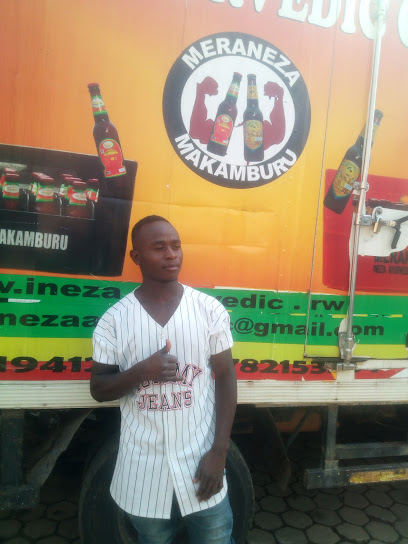
Gikoro Shopping Center
Visit Gikoro Shopping Center in Ruhengeri for a unique shopping experience steeped in local culture and authentic Rwandan hospitality.

Azizi Life - Gorillas Gift Shop
Explore the vibrant culture of Rwanda at Azizi Life - Gorillas Gift Shop, where authentic handcrafted treasures await every visitor.
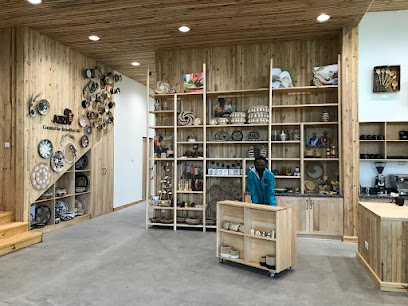
Aberwe Kids Shop
Explore Aberwe Kids Shop, a unique general store in Rwanda offering a delightful selection of children's products and local souvenirs.

PAPETERIE URUGWIRO
Discover the vibrant culture of Rwanda at Papeterie Urugwiro, a smart shop in Kinigi offering unique crafts and souvenirs.

Mukankusi Francoise
Experience the essence of Busogo at Mukankusi Francoise, where local culture and community spirit come alive in a charming general store.

NZABANITA Augustin
Discover the charm of Rwandan craftsmanship at NZABANITA Augustin, Mukamira's premier home goods store showcasing unique, handcrafted items.

CARPENTRY WORKSHOP
Discover the art of woodworking at the Carpentry Workshop in Taba—where tradition meets creativity in handcrafted gifts.

Essential bars & hidden hideouts
Golden Monkey
Discover the vibrant atmosphere of Golden Monkey, a top bar in Kinigi, Rwanda, perfect for unwinding after your adventures in Volcanoes National Park.
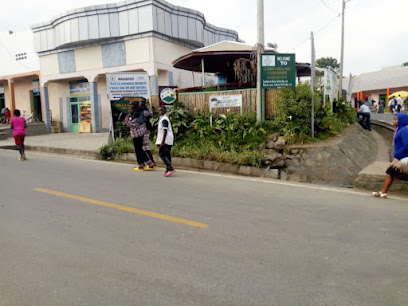
Base 1 Lounge and Bar
Discover the lively ambiance of Base 1 Lounge and Bar in Ruhengeri, where refreshing drinks and local culture come together for an unforgettable experience.
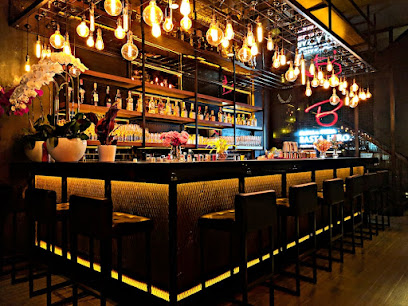
Munzove Bar
Discover Munzove Bar, a vibrant Rwandan hotspot for drinks, local culture, and socializing in a lively atmosphere.
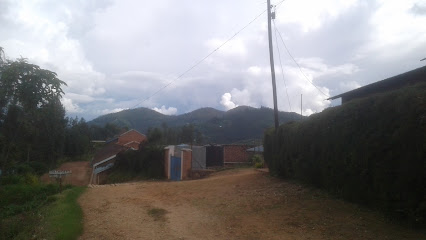
UMUSHIKIRANO Bar resto
Discover the lively UMUSHIKIRANO Bar Resto in Ruhengeri, a perfect spot for drinks, socializing, and enjoying local culture in a vibrant atmosphere.
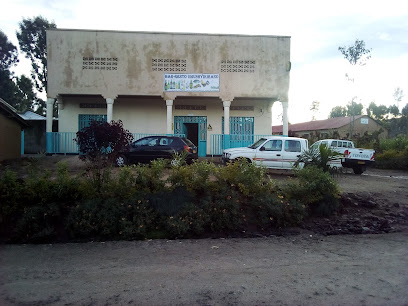
Whatsapp Bar
Discover the lively Whatsapp Bar in Ruhengeri, a perfect spot to enjoy local drinks and immerse yourself in the vibrant culture of Rwanda.
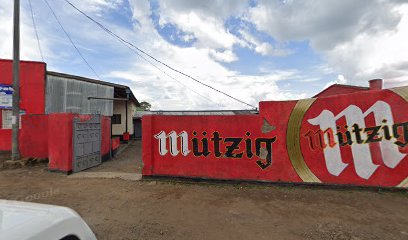
RUHIMBI LOCAL BAR
Discover the local charm at Ruhimbi Local Bar in Colline Giko, where delightful drinks and friendly conversations await every visitor.

SIGNATURE BAR
Discover the vibrant nightlife at The Signature Bar in Ruhengeri, where local culture meets a warm and inviting atmosphere.
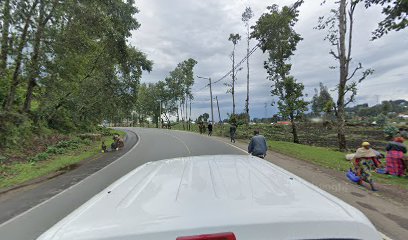
The best bar nyamagumba
Discover the vibrant local nightlife at The Best Bar Nyamagumba, a top spot in Ruhengeri for drinks, music, and unforgettable experiences.
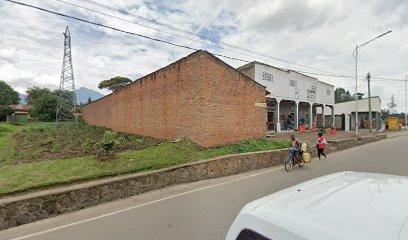
Star lounge
Experience the vibrant flavors and inviting atmosphere of Star Lounge, the premier dining destination in Ruhengeri, Rwanda.
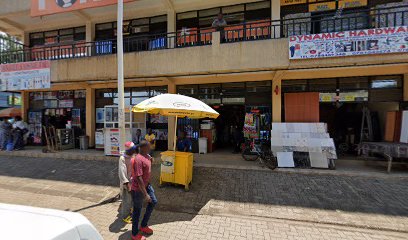
KIBINGO SPECIAL BAR
Experience the vibrant atmosphere and local flavors at Kibingo Special Bar in Rubavu, the perfect spot for relaxation and socializing.
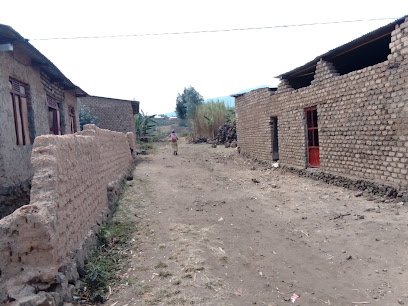
NEST Bar
Discover NEST Bar in Kinigi, where local flavors meet stunning views in a perfect dining experience amidst Rwanda's natural beauty.
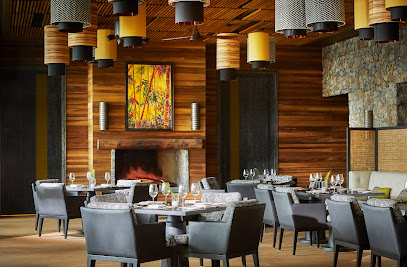
La Touristique Bar
Experience the vibrant flavors of Rwanda at La Touristique Bar, a top destination for grilled delights in the heart of Ruhengeri.
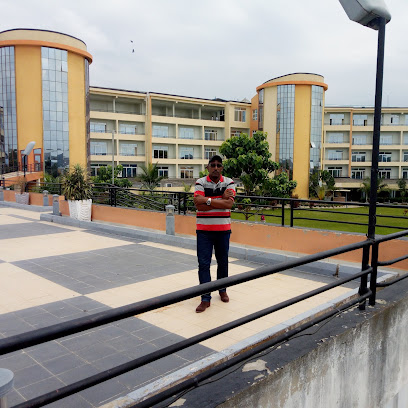
kungagi resto-bar
Discover the lively atmosphere and local flavors at Kungagi Resto-Bar in Ruhengeri, a must-visit for every traveler seeking Rwandan hospitality.
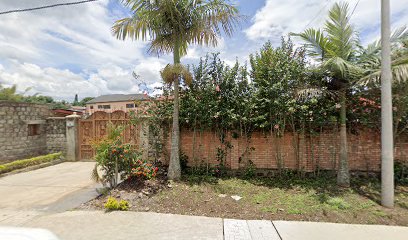
Romathymu factory
Discover the vibrant atmosphere of Romathymu in Mukingo - a perfect bar to unwind and experience local flavors and culture.

Local Phrases about Karisimbi Volcano
-
- HelloMuraho
[moo-rah-hoh] - GoodbyeMurabeho
[moo-rah-beh-hoh] - YesYego
[yeh-goh] - NoOya
[oh-yah] - Please/You're welcomeKubaza impamvu
[koo-bah-zah eem-pahm-voo] - Thank youMurakoze
[moo-rah-koh-zeh] - Excuse me/SorryNdasaba ubutumwa
[ndah-sah-bah oo-boo-toom-wah] - How are you?Amakuru?
[ah-mah-koo-roo] - Fine. And you?Ni meza. Na wewe?
[nee meh-zah. nah weh-weh] - Do you speak English?Ukunda kuvuga icyongereza?
[oo-koon-dah koo-voo-gah ee-chohn-geh-reh-zah] - I don't understandNtazi
[ntah-zee]
- HelloMuraho
-
- I'd like to see the menu, pleaseNifuze amenu, komeza
[nee-foo-zeh ah-meh-noo, koh-meh-zah] - I don't eat meatSi kunywa ibicu
[see koo-nywah ee-bee-choo] - Cheers!Mwaramutse!
[mwah-rah-moot-seh] - I would like to pay, pleaseNifuza kugurisha, komeza
[nee-foo-zah koo-goo-ree-shah, koh-meh-zah]
- I'd like to see the menu, pleaseNifuze amenu, komeza
-
- Help!Ubutumire!
[oo-boo-too-mee-reh] - Go away!Rohoka!
[roh-hoh-kah] - Call the Police!Simbisha Polisi!
[seem-bee-shah poh-lee-see] - Call a doctor!Simbisha daktari!
[seem-bee-shah dahk-tah-ree] - I'm lostNdi umusaruro
[ndee oo-moo-sah-roo-roh] - I'm illNdi mubabaro
[ndee moo-bah-bah-roh]
- Help!Ubutumire!
-
- I'd like to buy...Nifuza gutanga...
[nee-foo-zah goo-tah-ngah] - I'm just lookingNifuza gukora iby'indwara
[nee-foo-zah goo-koh-rah ee-byin-dwah-rah] - How much is it?Ni iki gihe?
[nee ee-kee gee-heh] - That's too expensiveNi bimwe cyane
[nee beem-weh chyah-neh] - Can you lower the price?Uragira ikihe?
[oo-rah-gee-rah ee-kee-heh]
- I'd like to buy...Nifuza gutanga...
-
- What time is it?Ni gihehe?
[nee gee-heh-heh] - It's one o'clockNi saa y'umwe
[nee sah yoo-mweh] - Half past (10)I saa (10)
[ee sah (10)] - MorningMwaramutse
[mwah-rah-moot-seh] - AfternoonMuhirwe
[moo-heer-weh] - EveningShyaha
[shyah-hah] - YesterdayEjo
[eh-joh] - TodayUyu munsi
[oo-you moon-see] - TomorrowEjo hafi
[eh-joh hah-fee] - 1Rimwe
[ree-mweh] - 2Kabiri
[kah-bee-ree] - 3Gatatu
[gah-tah-too] - 4Kane
[kah-neh] - 5Gatanu
[gah-tah-noo] - 6Gatandatu
[gah-tahn-dah-too] - 7Kumana
[koo-mah-nah] - 8Gatandatu
[gah-tahn-dah-too] - 9Icyenda
[ee-chyen-dah] - 10Icyenda cumi
[ee-chyen-dah choo-mee]
- What time is it?Ni gihehe?
-
- Where's a/the...?Ejo hafi
[eh-joh hah-fee] - What's the address?Aho ni cyaherezo?
[ah-hoh nee chyah-heh-reh-zoh] - Can you show me (on the map)?Uragushaka kunjira?
[oo-rah-goo-shah-kah koon-jee-rah] - When's the next (bus)?I saa y'umwe
[ee sah yoo-mweh] - A ticket (to ....)Itike y'umwanya (kuri ...)
[ee-tee-keh yoo-mwahn-yah koo-ree]
- Where's a/the...?Ejo hafi
History of Karisimbi Volcano
-
Karisimbi Volcano, one of the highest volcanoes in Africa, is part of the Virunga Mountain range. It was formed millions of years ago due to tectonic activity in the East African Rift Valley. Its towering presence at 4,507 meters (14,787 feet) is a testament to the powerful geological forces that shaped this region.
-
The name 'Karisimbi' is derived from the Kinyarwanda word 'amasimbi,' which means 'white shell.' This name is a reference to the snow that occasionally caps its summit, a rare sight in equatorial Africa. The white snow contrasts beautifully against the dark volcanic rock, making it a landmark easily recognizable from afar.
-
In the pre-colonial era, the area around Karisimbi was inhabited by the indigenous Twa, Hutu, and Tutsi peoples. The volcano and its surroundings were considered sacred, and various local myths and legends are tied to its imposing presence. It was often regarded as a powerful spirit or deity by the local communities.
-
The first recorded European to set eyes on Karisimbi was the German explorer and cartographer Gustav Adolf von Götzen in the late 19th century. His exploration marked the beginning of European interest in the region, which would later lead to colonization. Von Götzen's descriptions of the Virunga range helped put Karisimbi on the map for future explorers and scientists.
-
Karisimbi is an inactive stratovolcano, but it has had significant eruptions in the past that have shaped the landscape. The most notable eruption occurred roughly 8,000 years ago, which significantly altered the local topography. Even though it is currently dormant, the surrounding region is geologically active, with frequent earthquakes and occasional eruptions from neighboring volcanoes.
-
Karisimbi gained global attention in the 20th century due to the work of primatologist Dian Fossey. Fossey established the Karisoke Research Center between Karisimbi and Mount Bisoke in 1967 to study and protect the endangered mountain gorillas. Her work drew international attention to the plight of the gorillas and the need for conservation in the Virunga region.
-
Today, Karisimbi is a key feature of the Volcanoes National Park, which attracts thousands of tourists each year. It is a popular destination for trekkers and nature enthusiasts who come to experience its unique biodiversity, including the famous mountain gorillas. The volcano is also a symbol of Rwanda's natural beauty and a testament to the country's commitment to conservation.
-
The local communities living around Karisimbi have a rich cultural heritage that is closely tied to the volcano. Traditional practices, rituals, and folklore often reference the mountain, highlighting its importance in their daily lives. Efforts are ongoing to ensure that tourism and conservation initiatives benefit these communities, preserving their cultural heritage while promoting sustainable development.
Karisimbi Volcano Essentials
-
Karisimbi Volcano is situated in the Volcanoes National Park in Rwanda. The nearest international airport is Kigali International Airport, approximately 120 kilometers away. From Kigali, you can take a private car, taxi, or a bus to the town of Musanze, which serves as the gateway to the park. The journey from Kigali to Musanze typically takes around 2 to 3 hours. From Musanze, you can arrange for a 4x4 vehicle to take you to the Volcanoes National Park entrance.
-
Local transportation primarily consists of taxis, minibuses (matatus), and motorcycle taxis (motos). For a more comfortable and reliable mode of transport, it's recommended to hire a private car with a driver. Public buses are available from Kigali to Musanze, but for trips within the park and to the volcano, a 4x4 vehicle is advisable due to the rough terrain.
-
The official currency in Rwanda is the Rwandan Franc (RWF). Credit cards are accepted in major hotels, restaurants, and some shops in Musanze, but it is advisable to carry cash, especially when visiting remote areas like the Volcanoes National Park. ATMs are available in Musanze, but make sure to withdraw sufficient cash before heading to the park.
-
Rwanda is generally safe for tourists, and the Volcanoes National Park is well-patrolled by park rangers. However, it is advisable to take standard precautions. Avoid walking alone at night in isolated areas and keep an eye on your belongings in busy places. There are no specific high-crime areas targeting tourists near the park, but staying vigilant is always recommended.
-
In case of emergency, dial 112 for immediate assistance. Musanze has medical facilities, including pharmacies and hospitals. It is recommended to have travel insurance that covers medical emergencies. Park rangers and guides are trained in first aid and can provide assistance if needed during your trek.
-
Fashion: Do wear comfortable and sturdy hiking boots, and dress in layers to accommodate varying weather conditions. Avoid flashy or revealing clothing. Religion: Do respect local customs and traditions. If visiting religious sites in nearby areas, dress modestly and remove your shoes when entering. Public Transport: Do be respectful and greet the driver and passengers when boarding. Don't eat or drink on public transport. Greetings: Do greet people with a handshake or a simple 'Muraho' (hello in Kinyarwanda). A slight bow of the head is also a sign of respect. Eating & Drinking: Do try local delicacies and accept food offerings graciously. Don't refuse hospitality, as it is considered impolite.
-
To experience Karisimbi Volcano like a local, engage with guides and park rangers who can share fascinating stories about the area’s geology and wildlife. Visit local markets in Musanze to buy fresh produce and traditional Rwandan crafts. Don't miss the chance to learn about the conservation efforts for mountain gorillas, as the Volcanoes National Park is a key habitat for these endangered animals. For an authentic experience, consider staying in locally-owned lodges or guesthouses.
Nearby Cities to Karisimbi Volcano
-
Things To Do in Rubavu
-
Things To Do in Gisenyi
-
Things To Do in Kibuye
-
Things To Do in Muhanga
-
Things To Do in Karongi
-
Things To Do in Kigali
-
Things To Do in Nyagatare
-
Things To Do in Nyamata
-
Things To Do in Butare
-
Things To Do in Kirundo
-
Things To Do in Kayanza
-
Things To Do in Cibitoke
-
Things To Do in Ngozi
-
Things To Do in Mbarara
-
Things To Do in Muyinga










